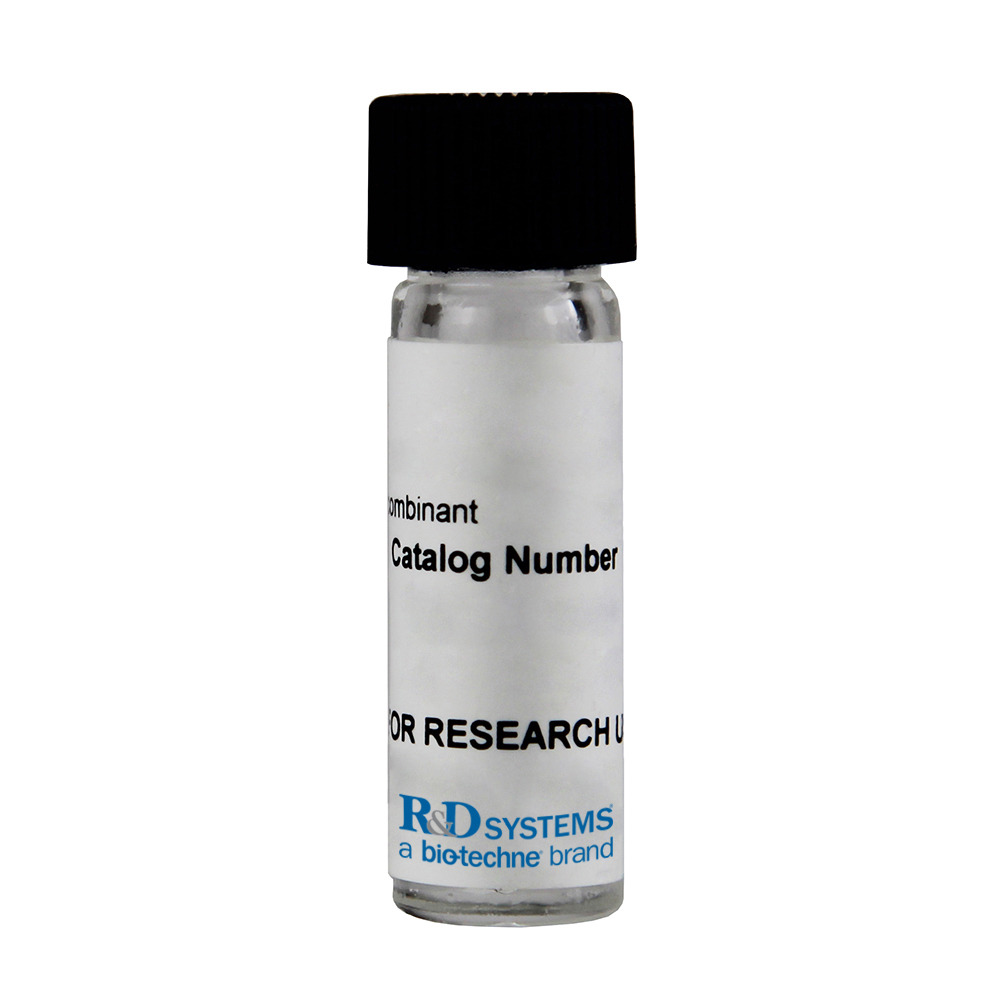 全部商品分类
全部商品分类

 下载产品说明书
下载产品说明书 下载SDS
下载SDS 用小程序,查商品更便捷
用小程序,查商品更便捷


 收藏
收藏
 对比
对比 咨询
咨询Carrier Free
CF stands for Carrier Free (CF). We typically add Bovine Serum Albumin (BSA) as a carrier protein to our recombinant proteins. Adding a carrier protein enhances protein stability, increases shelf-life, and allows the recombinant protein to be stored at a more dilute concentration. The carrier free version does not contain BSA.
In general, we advise purchasing the recombinant protein with BSA for use in cell or tissue culture, or as an ELISA standard. In contrast, the carrier free protein is recommended for applications, in which the presence of BSA could interfere.
2500-ZN
| Formulation | Supplied as a 0.2 μm filtered solution in Tris, NaCl and Glycerol. |
| Shipping | The product is shipped with polar packs. Upon receipt, store it immediately at the temperature recommended below. |
| Stability & Storage: | Use a manual defrost freezer and avoid repeated freeze-thaw cycles.
|
Recombinant Mouse Aminopeptidase PILS/ARTS1 Protein, CF Summary
Product Specifications
Ser27-Leu930, with a C-terminal 10-His tag
Analysis

Background: Aminopeptidase PILS/ARTS1
The mouse ARTS1 gene encodes aminopeptidase PILS (Puromycin-Insensitive Leucyl-Specific), which is also known as adipocyte-derived leucine aminopeptidase, type 1 tumor necrosis factor receptor shedding aminopeptidase regulator and ERAAP (the aminopeptidase associated with antigen processing in the endoplasmic reticulum) (1-3). The deduced amino acid sequence of mouse ARTS1 consists of a signal peptide and a large ectodomain. Widely expressed and releasing an N‑terminal amino acid (Leu), the enzyme may play a role in many processes such as antigen processing and angiogenesis.
- Miyashita, H. et al. (2002) Blood 99:3241.
- Serwold, T. et al. (2002) Nature 419:480.
- Schomburg, L. (2004) in Handbook of Proteolytic Enzymes. Barrett, et al. eds. p. 311, Academic Press, San Diego.





